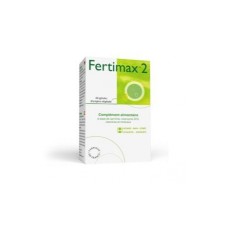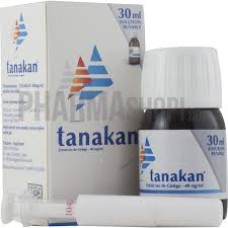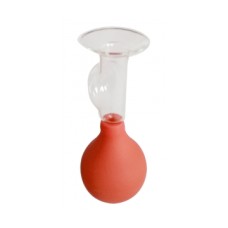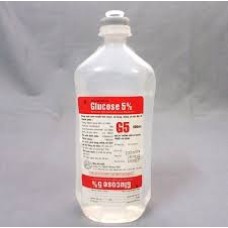ACFOL 5MG COMP B/25
Folic acid is indicated for the treatment of megaloblastic anaemia due to folic acid deficiency. It is also used for prophylaxis in chronic haemolytic states, in renal dialysis, and in drug induced folate deficiency.
Folic acid is used for the prevention of recurrence of neural tube defects.
4.2 Posology and method of administration
Posology
Adults
In folate deficient megaloblastic anaemia:
5mg daily for 4 months
Up to 15mg daily may be necessary for malabsorption states
For prophylaxis in chronic haemolytic states or in renal dialysis:
5mg every 1-7 days depending on diet and underlying disease.
In drug induced folate deficiency:
5mg daily
Prevention of recurrence of neural tube defects
5mg daily starting before conception and continuing throughout the first trimester of pregnancy is recommended.
Paediatric population
Over 1 year : As adult dose
Up to 1 year: 500µg/kg daily
Method of administration
The tablets are for oral use.
4.3 Contraindications
Hypersensitivity to the active substance or to any of the excipients listed in section 6.1.
Patients with malignant disease, unless megaloblastic anaemia due to folic acid deficiency.
4.4 Special warnings and precautions for use
Folic acid should not be administered for treatment of pernicious anaemia or undiagnosed megaloblastic anaemia without sufficient amounts of cyanocobalamin (vitamin B12) as folic acid alone will not prevent and may precipitate development of subacute combined degeneration of the spinal cord. Therefore a full clinical diagnosis should be made before initiating treatment.
Folate should not be routinely used in patients receiving coronary stents.
Caution should be exercised when administering folic acid to patients who may have folate dependent tumours.
Folic acid is removed by haemodialysis.
Patients with rare hereditary problems of galactose intolerance, the Lapp lactase deficiency or glucose-galactose malabsorption should not take this medicine.
4.5 Interaction with other medicinal products and other forms of interaction
Absorption of folic acid may be reduced by sulfasalazine.
Concurrent administration with cholestyramine may interfere with folic acid absorption. Patients on prolonged cholestyramine therapy should take folic acid 1 hour before or 4 to 6 hours after receiving cholestyramine.
Antibiotics may interfere with the microbiological assay for serum and erythrocyte folic acid concentrations and may cause falsely low results.
Trimethoprim or sulfonamides, alone or in combination as co-trimoxazole, may reduce the effect of folic acid and this may be serious in patients with megaloblastic anaemia.
Serum levels of anticonvulsant drugs (phenytoin, phenobarbital, primidone) may be reduced by administration of folate and therefore patients should be carefully monitored by the physician and the anticonvulsant drug dose adjusted as necessary.
Fluorouracil toxicity may occur in patients taking folic acid and this combination should be avoided.
Edible clay or antacids containing aluminium or magnesium may reduce folic acid absorption. Patients should be advised to take antacids at least two hours after administration of folic acid.
Folic acid may reduce intestinal absorption of zinc (of particular importance in pregnancy).
4.6 Fertility, pregnancy and lactation
Pregnancy
Folic acid deficiency during pregnancy may lead to the appearance of foetal malformations. Imbalance in folate requiring trophoblast cells may also lead to detachment of the placenta.
Very high doses of folic acid have been shown to cause foetal abnormalities in rats; however, harmful effects in the human foetus, mother or the pregnancy have not been reported following ingestion of folic acid.
Breastfeeding
Folic acid is excreted in breast milk.
No adverse effects have been observed in breast-fed infants whose mothers were receiving folic acid.
4.7 Effects on ability to drive and use machines
None known
4.8 Undesirable effects
Folic acid is generally well tolerated although the following side effects have been reported:
Blood and lymphatic system disorders:
Folic acid may worsen the symptoms of co-existing vitamin B12 deficiency and should never be used to treat anaemia without a full investigation of the cause.
Immune system disorders:
Rare: Allergic reactions, comprising erythema, rash, pruritus, urticarial, dyspnoea, and anaphylactic reactions (including shock).
Gastrointestinal disorder:
Abdominal distension, flatulence, anorexia and nausea.
| Pharmacie | |
| Conseils | Folic acid should not be administered for treatment of pernicious anaemia or undiagnosed megaloblastic anaemia without sufficient amounts of cyanocobalamin (vitamin B12) as folic acid alone will not prevent and may precipitate development of subacute combined degeneration of the spinal cord. Therefore a full clinical diagnosis should be made before initiating treatment. Folate should not be routinely used in patients receiving coronary stents. Caution should be exercised when administering folic acid to patients who may have folate dependent tumours. Folic acid is removed by haemodialysis. Patients with rare hereditary problems of galactose intolerance, the Lapp lactase deficiency or glucose-galactose malabsorption should not take this medicine. Interaction with other medicinal products and other forms of interaction Absorption of folic acid may be reduced by sulfasalazine. Concurrent administration with cholestyramine may interfere with folic acid absorption. Patients on prolonged cholestyramine therapy should take folic acid 1 hour before or 4 to 6 hours after receiving cholestyramine. Antibiotics may interfere with the microbiological assay for serum and erythrocyte folic acid concentrations and may cause falsely low results. Trimethoprim or sulfonamides, alone or in combination as co-trimoxazole, may reduce the effect of folic acid and this may be serious in patients with megaloblastic anaemia. Serum levels of anticonvulsant drugs (phenytoin, phenobarbital, primidone) may be reduced by administration of folate and therefore patients should be carefully monitored by the physician and the anticonvulsant drug dose adjusted as necessary. Fluorouracil toxicity may occur in patients taking folic acid and this combination should be avoided. Edible clay or antacids containing aluminium or magnesium may reduce folic acid absorption. Patients should be advised to take antacids at least two hours after administration of folic acid. Folic acid may reduce intestinal absorption of zinc (of particular importance in pregnancy). Fertility, pregnancy and lactation Pregnancy Folic acid deficiency during pregnancy may lead to the appearance of foetal malformations. Imbalance in folate requiring trophoblast cells may also lead to detachment of the placenta. Very high doses of folic acid have been shown to cause foetal abnormalities in rats; however, harmful effects in the human foetus, mother or the pregnancy have not been reported following ingestion of folic acid. Breastfeeding Folic acid is excreted in breast milk. No adverse effects have been observed in breast-fed infants whose mothers were receiving folic acid. Effects on ability to drive and use machines None known Undesirable effects Folic acid is generally well tolerated although the following side effects have been reported: Blood and lymphatic system disorders: Folic acid may worsen the symptoms of co-existing vitamin B12 deficiency and should never be used to treat anaemia without a full investigation of the cause. |
| Description | Name of the medicinal product Folic Acid 5mg Tablets Qualitative and quantitative composition Folic Acid 5mg Excipients with known effect Lactose For the full list of excipients see section 6.1. Pharmaceutical form Tablet Plain yellow, biconvex tablet with break-line on one face and CP on the reverse. Clinical particulars Therapeutic indications Folic acid is indicated for the treatment of megaloblastic anaemia due to folic acid deficiency. It is also used for prophylaxis in chronic haemolytic states, in renal dialysis, and in drug induced folate deficiency. Folic acid is used for the prevention of recurrence of neural tube defects. |









































-228x228.jpg)






-228x228.jpg)









































-228x228.jpg)






-228x228.jpg)

























![MixPad Free Multitrack Recording Studio and Music Mixing Software [Download] MixPad Free Multitrack Recording Studio and Music Mixing Software [Download]](https://ekomarkethub.com/shop/image/cache/wkseller/Furnitures16/71ltIxIuz1L._SX522_-228x228.jpg)














-228x228.jpg)
-74x74.jpg)
-74x74.jpg)
